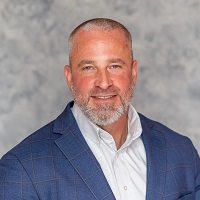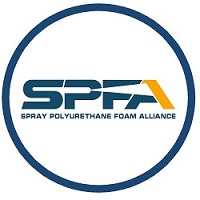Ken Wells, co-owner of Elite Insulation & PolyPro and president of the Spray Polyurethane Foam Alliance (SPFA) Board of Directors, recently joined the CoatingsPro Interview Series of podcasts.
Discussion topics from that exclusive interview include goals for his current SPFA term; challenges and opportunities within the evolving marketplace of the spray polyurethane foam (SPF) industry; and resources from the SPFA that can potentially be of assistance to contractors and other coatings industry professionals.
Read on for a partial Q&A transcript, and listen to the full episode online at www.coatingspromag.com/podcasts or at the embedded link below.
Q: What are some of the challenges when it comes to getting people to consider SPF as a solution for their project or client?
 Ken Wells:
Ken Wells: There are some challenges. As far as contractors and choosing spray foam in particular, most of the contractors look at the sticker shock and the up-front number. And if you look at that up-front number is a cost comparison to inferior insulations, it can be a bit shocking.
But when you compare what you might pay in energy bills with an inferior insulation — over a period of time — to the gains you would make on those energy payments with something like spray foam… really, that up-front cost is not such a big deal.
Some other challenges to the industry, one is training for new people. It’s always been a challenge for some entering the industry with insufficient equipment, application, and building science knowledge. That’s one of the things we’re working on.
Hiring can be a challenge for SPF contractors. It involves a lot of different aspects to be able to do it properly. We need to really get that word out to skilled laborers that spray foam can be a valid and viable career path. And then there’s education. Specifically, dealing with code officials can be a bit of a challenge. We're also working on that.
Q: When you get together as an alliance, the SPFA, what are some of the talking points? What are you guys talking about in terms of common challenges, opportunities, or pain points. Generally speaking, what are those conversations like?
Wells: One of the great things about the SPF industry, which I think is pretty unique, is that we’re really a pretty tight0knit group. It’s a tough job. So, when we get together, it really is a lot like family. Talking points can range from asking about kids and family to new equipment and smart business practices.
One of the biggest talking points, most recently, is probably industry regulations… and whether it’s necessary. And from there, exactly how and what that would look like.
Q: Can you elaborate on that, in terms of what the key question is there? I know there are some parameters in place. So drilling down deeper, what is the point in question when it comes to regulations?
Wells: The general battle, when talking about regulation, is that some people want full government regulation, and some people do not. And there are opinions in the way that the industry should best regulate itself to try and avoid government regulation.
 We have many meetings at our shows, and we have contractor only meetings, where we sit and try to hash out what we’re going to do and what the best pathway is.
We have many meetings at our shows, and we have contractor only meetings, where we sit and try to hash out what we’re going to do and what the best pathway is.
We’ve had many talks between industry professionals about this subject. I don’t think we’ve come close to settling on a full solution yet.
I have my own opinions, and I think that eventually, once the once the spray foam sector gets big enough, there will be some sort of government regulation. But in the meantime, in my opinion, if we can self-regulate and avoid governmental regulation, as long as possible, I think we’d be better off.
Q: How much of it can vary based on region?
Wells: There are what you might call regulation hotbeds, and states that regulate things more than others. But for those situations, we have a free advocacy group. Anyone can join, you just sign up. And when those kinds of situations happen, we can let our whole membership — or even people that aren’t members and are just advocates on this group — we can let them know when there’s a challenge that we need to respond to.
Q: How much does the SPFA help, when you can put these different contractors together? What are the opportunities that you can do as an alliance, collaboratively, that an individual contractor or installer can’t do by themselves?
Wells: I’ll go back to training. We haven’t done any formal training programs yet, but we do have the SPFA PCP [professional certification] program, which recognizes and certifies those that are properly trained. It’s not a training program, necessarily, but it’s a certification program in which we’re expecting the people to come in with the knowledge and prove that they have it.
We’ve also been in communication with a few technical schools, to see if an introductory [course] to SPF training would be a good fit. This way, young and technically inclined students could choose to learn the SPF trade… just as they would carpentry, masonry, or HVAC [heating, ventilation, and air conditioning].
We’re also always looking for volunteers that are looking to network with other industry professionals… and to learn more and challenge themselves. With all that help that we’re putting out there, we’re always looking for help, too.
Q: What resources are available that can help somebody right now, in 2024, if they’re listening and potentially interested in getting involved with the SPFA?
Wells: SPFA is really the spray foam contractor’s best friend. Through various technical document releases, studies, and constant networking, we raise the bar on building science, education, and SPF applications.
In a lot of cases, local code officials and builders alike are learning proper building science from their local, SPFA spray foam professionals. In some cases, SPF contractors are getting invited to code official meetings to help present and educate. And as I mentioned, we also have a free advocacy network. All you have to do is sign up. And then, as those kinds of industry issues arise, everybody is notified. That way, we can best respond to them.
 Q: Nationally, we’re seeing an uptick in extreme weather events. There are concerns about climate change. Are those opportunities for you all to be involved in the conversation? Obviously, code officials want to get these buildings more secure. Can SPF be the solution?
Q: Nationally, we’re seeing an uptick in extreme weather events. There are concerns about climate change. Are those opportunities for you all to be involved in the conversation? Obviously, code officials want to get these buildings more secure. Can SPF be the solution?
Wells: Absolutely. Spray foam is going to continue growing because of that. There’s no other commercially available insulation that performs as well. With all the R-values rising and increasing because of climate change, spray foam is the only thing that can be used in a lot of situations. There just isn’t enough room in some wall and ceiling cavities, any other way, for the R-value.
For more information, contact: SPFA, (800) 523-6154, www.sprayfoam.org
Wells’ comments were made on the CoatingsPro Interview Series. To hear the complete podcast episode, listen below.